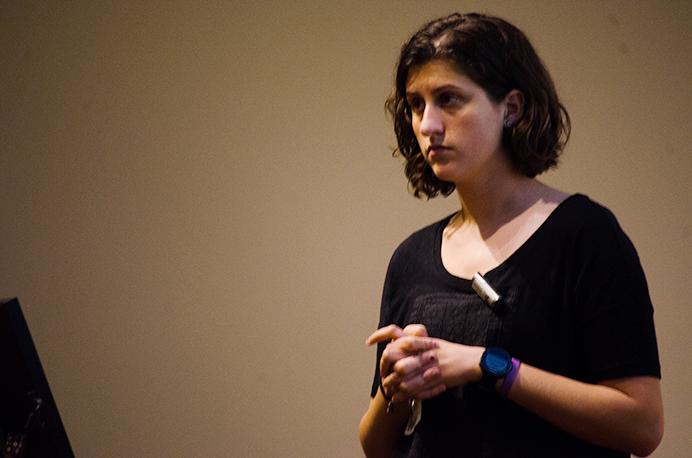By Natalie Betz
Members of the LGBTQ community do not always receive correct diagnoses or treatments because there are not as many health providers specifically trained to help them, experts say.
The new LGBT Advocates for Public Health Equity organization received a grant to host its first symposium for public-health awareness on April 15, titled Future Directions of LGBT Public Health: Comprehensively Meeting the Needs of Diverse Communities.
The Advocates are members of a group of graduate and undergraduate students with specific interest in LGBTQ health issues because there is not an LGBTQ-specific track in the College of Public Heath, said Lauren Pass, a founder of the organization.“The next generation of health providers is coming from here, so it’s important that we discuss how to provide the health needs the LGBTQ population needs,” Pass said.
One of the public-health school’s core values is social justice, said Tanya Uden-Holman, a UI clinical professor of health management and policy. The event shines a light on the problems with some hospital policies and forms that do not account for LGBTQ individuals.
“It’s important for medical reporting forms to reject gender binaries,” said Kayla Faust, a Ph.D. student in the Department of Occupational Environmental Health.
Uden-Holman said the LGBTQ community needs culturally competent care.
“We want to provide the public-health workforce with training so they’re aware of LGBTQ needs,” she said. “It’s important that there are health sciences devoted to the LGBTQ population.”
It’s also critical that Iowa City community members attended, Pass said, so it’s not just researchers and practitioners; that way, there is more awareness of how to properly treat the LGBTQ community.
There is a focus on HIV status of LGBTQ people in Iowa City, but there are other health issues, such as mental illnesses, that the Equity Advocates want to address to bring awareness of the problems so people can be properly treated, Faust said.
Many LGBTQ people have had a negative experience with health professionals in which they were outed, prompting them to not seek help again, she said. Instead, they look for guidance far away, so the organization hopes to make all people feel comfortable with receiving proper medical attention, she said.
For example, she said, lesbian women have eating disorders for different “underlying reasons,” compared to straight women. Health providers should be knowledgeable on LGBTQ health issues and offer different approaches so patients can be properly treated, Faust said.
The symposium consisted of several health professionals discussing their research on how to benefit LGBTQ patients’ trips to hospitals.
Researcher Ana-Monica Racila, a UI Ph.D. student in medical anthropology, studied how providers train in transgender health care compared to patients who are cisgender. In her research, she said, she studies how healthcare professionals trained in transgender healthcare treat their patients in a medical system designed for patients who are cisgender.
In the future, the group plans on launching a web portal in the middle of summer to issue bio-sketches and projects from graduate-level students and higher who specialize in LGBTQ health policies in order to provide essential resources.







